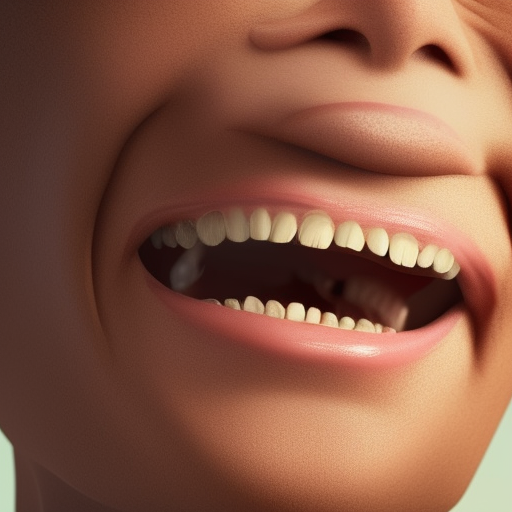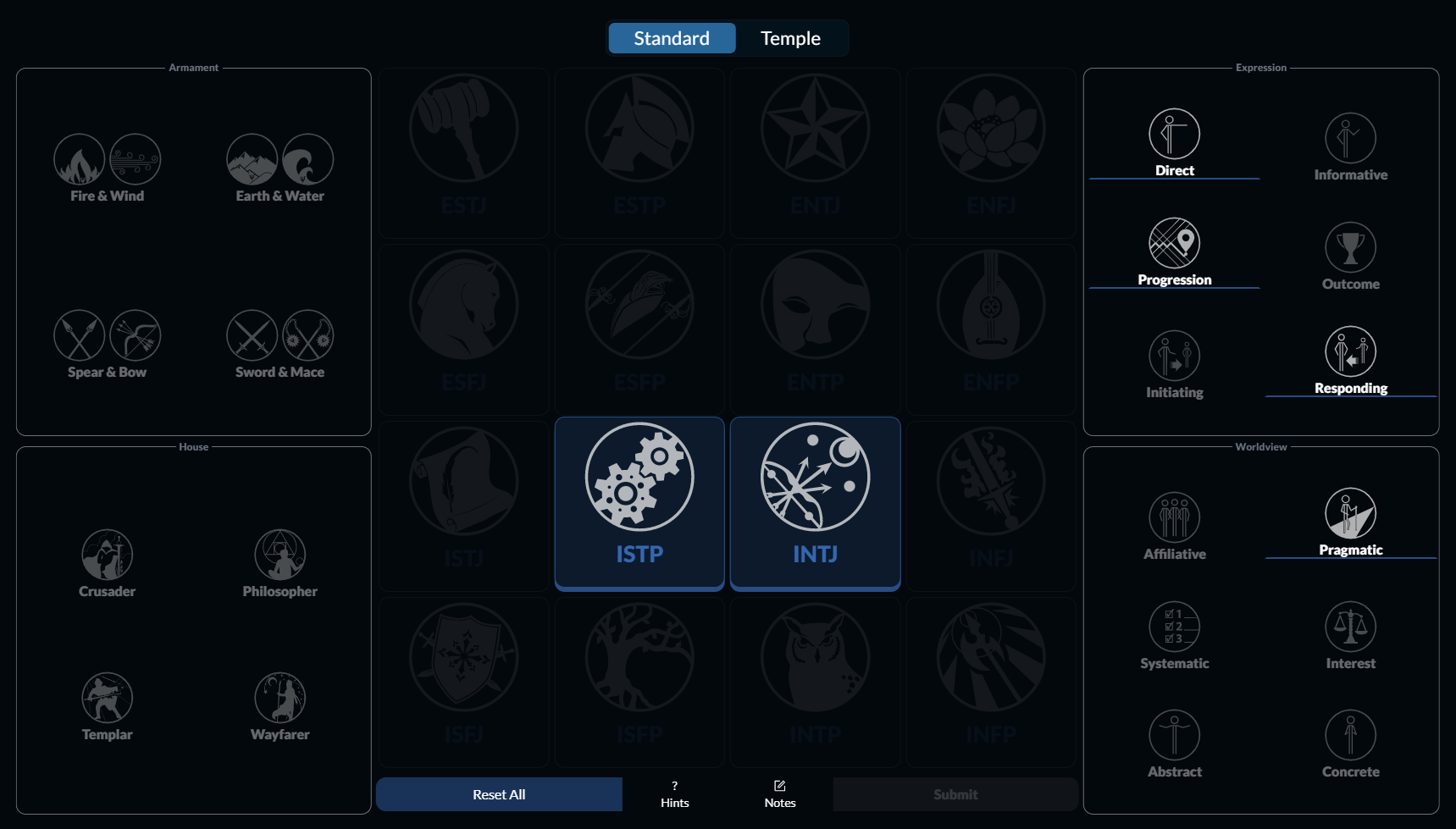
Near market close, I will observe @IsaacKing's behavior and ascertain to the best of my ability whether he is happy or not. Resolves YES if in my subjective opinion @IsaacKing seems happy at market close.
I will not bet on this market.
🏅 Top traders
| # | Trader | Total profit |
|---|---|---|
| 1 | Ṁ70 | |
| 2 | Ṁ28 | |
| 3 | Ṁ13 | |
| 4 | Ṁ3 |
@MartinRandall I'm generally satisfied with my number of teeth, though I'd slightly prefer to have one more.
This really needs more specific resolution criteria. Does it go by my self report, by ZZZZZZ's psychological evaluation of me based on my internet comments, or something else?
Does "happy" mean "happier than the average human", "happier than the average WEIRD Manifold user", "happier than average for Isaac", or a different baseline?
@IsaacKing my psychological evaluation based on whatever criteria I want. Happy means experiencing more positive emotions than negative emotions.
@IsaacKing hopefully, you'll tell us how you're feeling since that will probably a big help for me to evaluate your level of happiness.
@ZZZZZZ Enough people are already trying to do that that I doubt Manifold would make a significant contribution for such low stakes.
@ZZZZZZ I have a tendency to do controversial things, and many of my acquaintances think that the best response to that is to attempt to punish me for having done so.
@IsaacKing there's a different in punishing people to prove a point and just punishing people through social engineering like a deliberate attempt to make them feel worse.
@ZZZZZZ I think there were elements of both goals in their reaction, but I can't read their minds.
@IsaacKing It's wild to read multiple people talking about their trauma with data collection and about consent to make statistics based on observations of things. Nothing makes me want to never interact with the MTG community more then this. The fact they went so hard on you that you wrote a 10k word reply is funny.
@memestock Yeah, it definitely lowered my opinion of the judge program's interest in being good at what they do. It was also somewhat funny to see so many "abolish the police" leftists suddenly start angrily opposing any investigation whatsoever into their own competence to perform a similar "enforcer" position.
@ZZZZZZ It isn't plausible that that 99% of people experience more happy emotions than negative ones. Not compatible with modern personality research, neurotic introverts aren't like that.
@IsaacKing FWIW the way I read it was that it was more of a feedback tool and a "huh interesting" then anything supposed to cast any judgement on the abilities of the other judges. It's a good example though that you have to be careful with that community since there are A LOT of far left people in there who will tear you apart for any perceived moral failing.
I think I bet on the wrong side of the market now. Based on your replies to that facebook post it looks like you kept your calm despite the hate you were getting about it. That leads me to believe you are probably more mentally stable then previously thought.
@Jotto999 Interesting, I may have been typical-minding. Do you have a link to a summary of the research you're thinking of?
@memestock Yes, that's how I intended it. My original plan was to try to use it to figure out what reasonable expectations were for judges of each level, and stuff like that.
I certainly did experience some negative emotions relating to that Facebook post, but I'm glad it looks like I succeeded in keeping them to myself.
@IsaacKing Yeah, INTJ and ISTP are very similar. It is really just a question of whether you are interest-based or systematic and abstract or concrete. Abstract/systematic would mean INTJ. Interest based or concrete would mean ISTP.

@Jotto999 Hmm, not looking good for my Twitter followers' mental health.
@IsaacKing Yeah, I stand by INTJ. I think you are more abstract than concrete based on my limited observations of you. Those tests are honestly terrible and cannot tell your correct type that much of the time. Feel free to disagree.
@ZZZZZZ I know almost nothing about personality tests and classifications, so you're probably more accurate than I would be.
For example my partner recently told me I seemed like an extrovert, which was surprising as my self image has always been strongly introverted. But it makes sense now that she points it out; I spend a lot of my time online talking to other people, and I also became a bit more emotionally volatile and easily frustrated when Covid hit, which coincided with me having less social contact with others.
@IsaacKing There was a study that showed introverts took COVID harder than extroverts. Extroverts got some needed time to introspect while introverts just felt lonely. Also, social interaction is not a sign of extroversion, it is just a sign of being healthy. It really is just a question of do you prefer people to come to you with information or do you prefer to come to other people with information. I get the feeling you are responding in that sense.
Anyway, about concrete/abstract, I would say definitely that MTG rules is a very abstract thing to be into. I think concrete people would be more likely to be like what does it matter if I can't see it with my own two eyes, so for that reason I would say abstract.
That said, it is notoriously difficult to type people so I would not be too confident about this but INTJ seems like a reasonable conclusion to draw just from the fact that you seem direct, responding, pragmatic and abstract.
@IsaacKing 1) It's very common to underestimate the negative emotionality of others. I wish I had the attention to do a lit review but I'd mention e.g.:
https://www.ncbi.nlm.nih.gov/pmc/articles/PMC4138214/
2) Myers-Briggs is pseudoscience, and inferior to Big Five (or its upgraded offshoot, HEXACO). E.g.:
https://openpsychometrics.org/tests/IPIP-BFFM/
Or if you want to upgrade to the modified, slightly-more-predictive HEXACO (which uses some terms differently):
https://hexaco.org/hexaco-online
@Jotto999 Who says Myers-Briggs is a psuedoscience? I believe that the way it is usually used is a psuedoscience but I think there is real science behind the underlying concepts behind the MBTI (if used right). Do you disagree?
@Jotto999 See for example alittlebitofpersonality.com's facial typing system. I know the proof isn't necessarily available but we shouldn't necessarily dismiss things before they are properly studied. All science started out hypotheses. See: https://www.alittlebitofpersonality.com/subtypes/. They claim there is science behind it. Of course, we will know with more confidence once this is resolved. Big Five describes behavior, not cognition. That is the difference. The MBTI type isn't supposed to change over time. So, the Big Five type is trying to determine a different thing to the MBTI type.
@Jotto999 well, I guess saying the Big Five is behavior typing might be a bit inaccurate. But what the Big Five does is studies basically net of behavior, of lots of different things inside the mind aggregated together so it is more difficult to tell much of value. Where as the MBTI tries to describe the details. For example, whether you have an informative interaction style vs a direct interaction style. If you saw there was no milk in the fridge, would you be more likely to say "There's no milk" (informative) or would say "We need to get milk" (direct). There is no Big Five trait that can answer that question.
That said, I haven't studied the HEXACO so I can't say specifically about that.
@ZZZZZZ So the thing that actually matters isn't whether there is anything behind Myers-Briggs archetypes. It's just not using modern, updated methods on data. Some of its dimension do correlate with Big Five dimensions, so that's good. But FFM/HEXACO dimensions were determined using actual data, they weren't hand-picked by what someone thought they should be. They're more predictive. I see no reason to keep using Myers-Briggs.
Your description that these more modern methods don't "describe the details" isn't true. They should give you subtrait scores as well (not just the broader trait buckets of agreeableness, conscientiousness, etc). Take the HEXACO test and it will give you lots of details.
@Jotto999 Which HEXACO or Big Five trait could describe the difference between informative and direct for example?
@Jotto999 (Under the MBTI system, EST, ENJ, IST and INJ types are direct, while ESF, ENP, ISF and INP types are informative.)
@ZZZZZZ You're asking me a question based on a taxonomy that's less-correlated with what's actually true. It's like arguing "Can Big Five tell me whether I'm a thingamajig versus a splatterwort? No?" as if that's a problem with Big Five.
If I remember correctly, Myers Briggs doesn't have anything analogous to Neuroticism, which is predictive of wellbeing, susceptibility to mental disorders, job burnout, etc.
Either method asks people large sets of questions, but Big Five uses Factor Analysis to see how the traits empirically cluster together. Nature can just tell us where its joints are. Instead of basing it on whatever Jung and Briggs thought how personality in humans should work.
Myers-Briggs does correlate with the actual trait buckets, but like, why use the worse option? I don't see the point at all, just read up on the newer, better things, and use those.
@Jotto999 I don't think there's anything wrong with the MBTI for not including neuroticism. I think there is a role for Big Five and MBTI to play since one describes cognition, the other is more behavior.
@Jotto999 Can you give an example of two different things that an open or not open person would do as I did for informative/direct?
@ZZZZZZ Higher openness to experience is correlated with higher educational attainment. The subtraits have more specific predictions -- people high in Interest in Ideas have higher IQ and tend to enjoy learning things. People higher in Aesthetics have a higher chance of pursuing artistic careers, and people high in unconventionality are more likely to have culturally unusual ideas/behaviors. These subtraits are correlated, which is why they're part of the "Openness" trait. Just as examples.
Anyway I don't have time to continue. You either figure out there are superior, modern methods, or you don't. Here's one of many interesting papers based on Big Five.
@ZZZZZZ Sounds good, I'd love to see markets on the future directions of research in various fields.
@Jotto999, @IsaacKing, @firstuserhere, I made an LW post explaining how an open-minded exploration of cognition leads to the MBTI.
